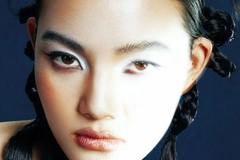Kenvue links ethnicity to concurrent menopause symptoms suggesting new personal care strategies

25 Sep 2024 --- Kenvue discovers variations in menopause symptoms based on ethnicity, with women of color experiencing more simultaneous symptoms that impact their quality of life. Personal Care Insights speaks with Ben Klein, associate director of Consumer Business Intelligence, Future of Self Care at Kenvue, to learn how the findings may inspire curated products for menopausal care.
The study investigated symptom co-occurrence and patient perceptions of Menopause Hormone Therapy (MHT) using two data abstracts supported by the company’s recently launched digital platform, Versalie, designed for menopause support.
Versalie data confirms menopause simultaneous symptom variation is significantly influenced by ethnicity and income, and patient perceptions differ by age group and knowledge level. Kenvue focused on a range of symptoms, including vasomotor, sleep and cognitive symptoms, alongside mental and sexual health.

The consumer health company highlights the benefits of symptom screening for personalized menopause care and guides healthcare providers in tailored questioning. The results come from an online survey in which respondents self-reported their symptoms and menopause stages.
The research finds that women aged 55 to 65 have a greater understanding of MHT, exhibit more positive attitudes toward it and are more receptive to utilizing it than women aged 40 to 50. MHT replaces the estrogen that the body stops making during menopause.
It found different ethnic groups experience common and unique menopausal experiences. For instance, hot flashes were accompanied by night sweats and mood swings across all ethnicities, and all ethnicities except Asian Americans also experienced mood swings. Anxiety was accompanied by depression, insomnia, fatigue, loss of mental sharpness and memory issues across all ethnicities. Women aged 55 to 65 are more receptive to using MHT.
Women aged 55 to 65 are more receptive to using MHT.
The research suggests genetic testing may enable a better understanding of ethnic patterns and genetic variability and facilitate targeted treatments for diverse groups of women.
What are the main findings from this research?
Klein: Women with more concurrent symptoms tend to have significantly impacted quality of life. More concurrent symptoms are statistically significant among minority groups.
Native American women had more concurrent symptoms in all 14 categories reported other than memory loss. Asian women experienced more symptoms concurrent with an irregular heartbeat than all ethnicities other than Native Americans. Hispanic women noted more symptoms concurrent with changes in body odor than all ethnicities other than Native Americans.
Menopause is not a one-size-fits-all experience, and our data suggests that different ethnicities experience menopause in different ways. Our findings align with findings from the Study of Women’s Health Across the Nation, which demonstrated the diversity of menopause symptom experiences among different racial/ethnic groups.
How can this data influence personal care solutions for menopause — specifically for different ethnicities?
Klein: Our findings may help aid menopause care through symptom screening and guide healthcare providers in tailored questioning. Arming consumers with this knowledge will also provide them with the opportunity to ask questions based on their background and seek out the appropriate personal care solutions.
This data suggests that improved awareness through patient, provider and community education could help women feel more supported and seek and receive appropriate treatments when indicated.
How should the personal care industry respond to this data?
Klein: We’re extremely proud of the diverse sample in our research and have continued to ensure we engage stakeholders with diversity in mind.
We’re excited to see how the rest of the personal care industry may follow suit and include more diverse sample sets in research. This data can also serve as a guiding light for providers to ask more questions targeted at personalizing their patient care strategies. Kenvue recommends personalized care for women experiencing menopause.
Kenvue recommends personalized care for women experiencing menopause.
How can various branches of the personal care industry use Versalie?
Klein: Menopause care has three primary gaps — trusted information in a sea of misinformation, access to menopause-trained healthcare providers and curated products to aid her self-care. Providers can turn to Versalie as the expert in menopause care for their patients through our comprehensive, evidence-based hub offering the following:
Free expert-reviewed articles: Expert-reviewed and authored education on various menopause topics, including symptom guides, sexual health, nutrition, physical activity and mental and emotional wellness. The articles are written with patients as the intended audience.
Curated products: A collection of products to help with various menopause symptoms ranging from thinning hair support to hot flashes, gut health, mood changes, skin care, trouble sleeping, brain fog and energy.
Virtual care: Access personalized, virtual care with menopause-trained nurse practitioners.
Consumers: Whether it’s information seeking, finding products that can help with menopause symptoms, or securing a virtual appointment with a menopause-trained clinician, Versalie has something for everyone going through the menopause transition. Its comprehensive offering of articles, products and care provides an all-in-one menopause care platform for patients to find the solutions they’ve been looking for.
How does the digital platform change menopause care for different ethnicities?
Klein: Clinicians should consider the contextual factors around each woman’s journey, including ethnicity, access to care, income, education and perceived symptom burden.
By Sabine Waldeck













